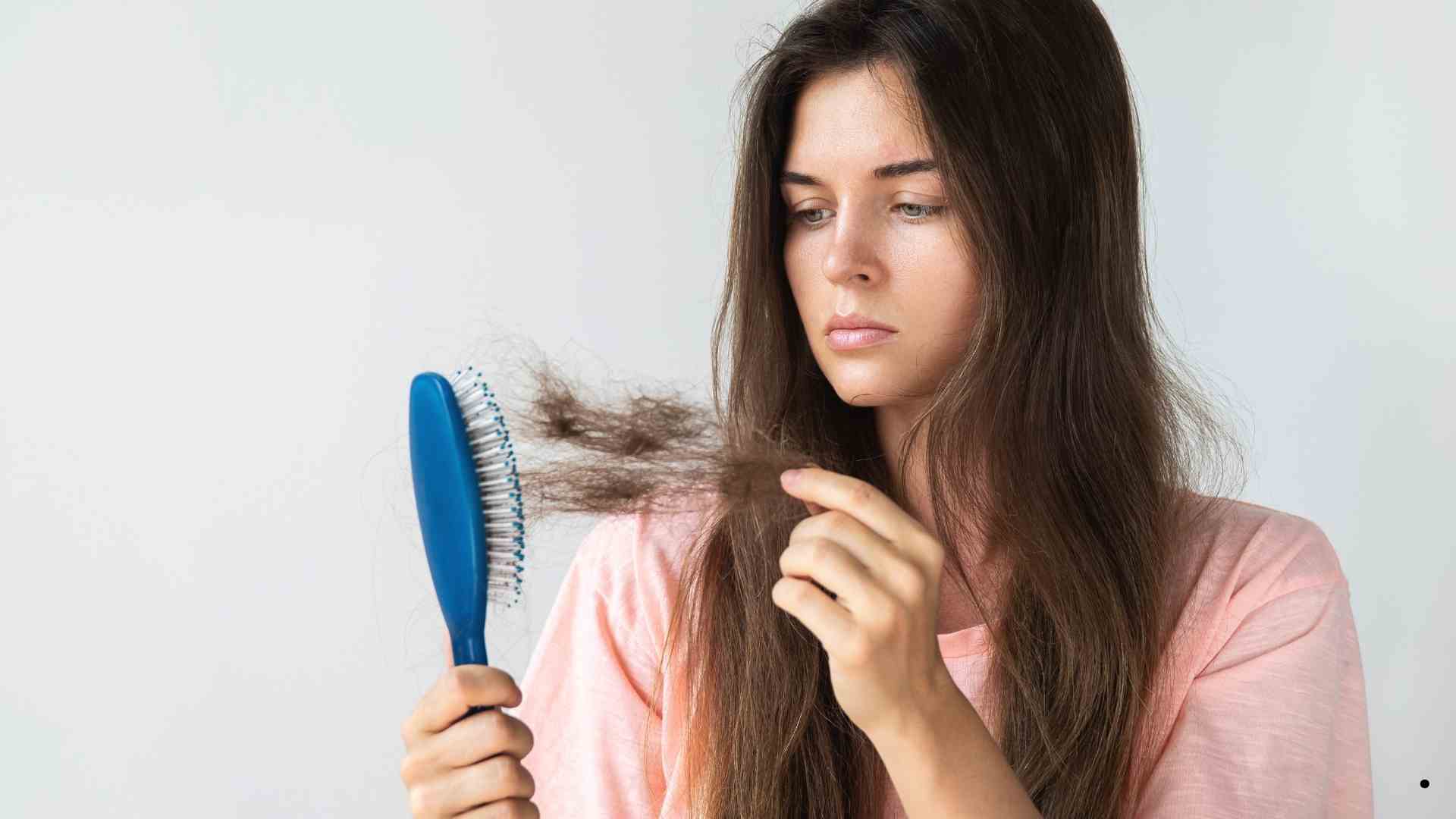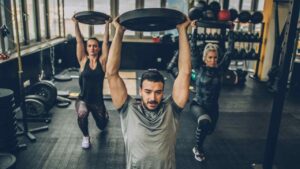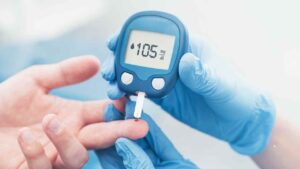Foods That Help Prevent Hair Loss: Hair loss is a common concern faced by many, regardless of age or gender. The right diet plays a crucial role in maintaining healthy hair. Including specific nutrient-rich foods in your daily meals can strengthen hair roots, promote growth, and reduce hair fall. Here’s a detailed guide on the best foods to include in your diet to prevent hair loss.
Nutrients That Are Essential for Hair Health
Before we dive into the foods, it’s important to understand the key nutrients that contribute to healthy hair:
- Proteins: Hair is made of keratin, a protein. A protein-rich diet is essential for hair strength and growth.
- Iron: Helps improve blood circulation to the scalp, delivering essential nutrients to hair follicles.
- Omega-3 Fatty Acids: Nourishes hair follicles and adds shine to your hair.
- Vitamin D: Boosts hair follicle health and promotes growth.
- Biotin (Vitamin B7): Prevents hair thinning and strengthens hair strands.
- Zinc: Aids in repairing damaged hair and promoting cell reproduction.
- Vitamin E: Protects hair follicles from oxidative stress and boosts scalp health.
- Vitamin C: Enhances iron absorption and stimulates collagen production for stronger hair.
Top Foods to Prevent Hair Loss
1. Eggs
Eggs are a rich source of protein and biotin, both of which are essential for hair growth. Biotin helps in the production of keratin, strengthening the hair strands.
2. Spinach
This leafy green is packed with iron, vitamin A, and vitamin C, all of which nourish the scalp and ensure healthy hair growth. Iron helps transport oxygen to the hair follicles, preventing hair loss.
3. Nuts and Seeds
Almonds, walnuts, sunflower seeds, and flaxseeds are excellent sources of omega-3 fatty acids, zinc, and vitamin E. These nutrients promote scalp health and reduce hair breakage.
4. Sweet Potatoes
Sweet potatoes are loaded with beta-carotene, which the body converts into vitamin A. Vitamin A helps in the production of sebum, a natural conditioner for the scalp.
5. Fish
Fatty fish like salmon, mackerel, and sardines are rich in omega-3 fatty acids and vitamin D, which promote hair density and strength.
6. Lentils and Legumes
Lentils are a great plant-based source of iron, protein, and biotin. Adding them to your diet helps prevent hair thinning.
7. Citrus Fruits
Oranges, lemons, and other citrus fruits are high in vitamin C, which aids in collagen production and strengthens hair structure.
8. Avocado
Avocado is packed with vitamin E and healthy fats that hydrate the scalp and improve hair texture.
9. Yogurt
Rich in protein and vitamin B5, yogurt helps nourish the scalp and strengthen hair follicles.
10. Whole Grains
Whole grains like oats and quinoa provide zinc, iron, and B vitamins, essential for healthy hair growth.
11. Carrots
Carrots are high in vitamin A, which promotes the production of natural oils in the scalp and supports overall hair health.
12. Bell Peppers
These vibrant vegetables are rich in vitamin C, which strengthens hair strands and protects against oxidative stress.
13. Pumpkin Seeds
Pumpkin seeds are a powerhouse of zinc and omega-6 fatty acids, which improve scalp health and combat hair loss.
14. Milk and Dairy Products
Milk, cheese, and yogurt provide calcium, protein, and vitamin D, all of which are vital for hair growth and maintenance.
Lifestyle Tips for Healthy Hair
- Stay Hydrated: Drink at least 8 glasses of water daily to keep your scalp hydrated.
- Exercise Regularly: Physical activity improves blood circulation, delivering nutrients to the scalp.
- Manage Stress: High stress levels can lead to hair loss; practice yoga or meditation to reduce stress.
- Avoid Harsh Chemicals: Limit the use of chemical-laden hair products and heat styling tools.
FAQs: Foods That Help Prevent Hair Loss
1. Can diet alone prevent hair loss?
While a healthy diet is crucial, factors like genetics, stress, and hormonal imbalances also play a role in hair loss. Combining a good diet with proper hair care can significantly reduce the problem.
2. How long does it take to see results from dietary changes?
Hair growth is a slow process. It can take 3 to 6 months of consistent dietary changes to notice significant improvements in hair health.
3. Are supplements necessary for hair growth?
If your diet lacks certain nutrients, supplements like biotin, zinc, or omega-3 can help. However, it’s best to consult a healthcare professional before starting any supplement.
4. Which foods should I avoid to prevent hair loss?
Avoid processed foods, sugary snacks, and excessive alcohol, as they can negatively impact hair health.
5. Can drinking water help with hair growth?
Staying hydrated is essential for overall health, including hair health. Drinking enough water keeps the scalp hydrated, promoting healthy hair growth.
6. Is hair loss reversible through diet?
If hair loss is due to nutrient deficiencies, a balanced diet can reverse the condition. For severe cases, medical intervention may be necessary.
Final Thoughts
Hair loss can be a distressing issue, but making simple dietary adjustments can have a significant impact. Focus on a balanced diet rich in proteins, vitamins, and minerals to support hair health. Remember, consistency is key to achieving long-term results. Combine these dietary changes with a healthy lifestyle for the best results.




